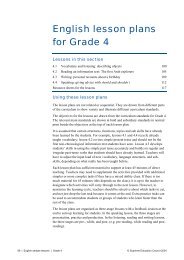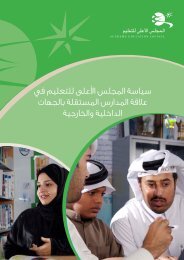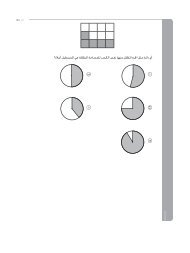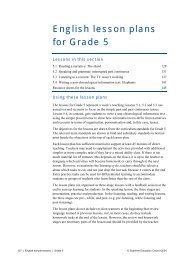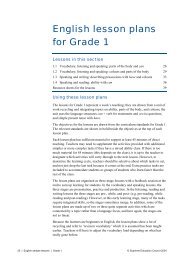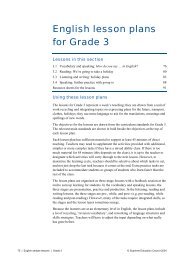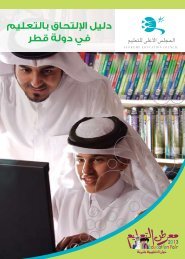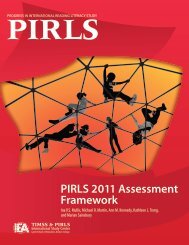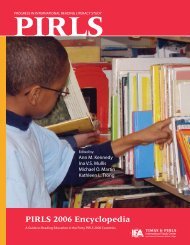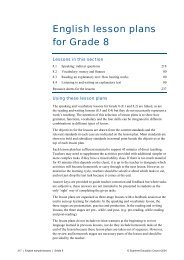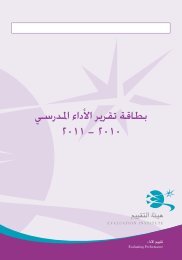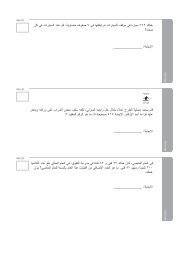English lesson plans for Grade 9
English lesson plans for Grade 9
English lesson plans for Grade 9
- No tags were found...
Create successful ePaper yourself
Turn your PDF publications into a flip-book with our unique Google optimized e-Paper software.
Example questions: What if it became a tourist area? Would there be moremoney? (Yes)Model sentence:Example question:Model sentence:If it became a tourist area, there’d be more money.If there were jobs would young people still leave? (No)Young people wouldn’t leave if there were jobs.Get students to copy the model sentences into their exercise books.PracticeResourcesTeacher’s resource 9.1aConcept checkElicit/check students understand the meaning/use, <strong>for</strong>m and pronunciation of thesecond conditional, used here <strong>for</strong> hypothetical situations in the future, with thequestions below. This is not the first time they’ve seen the second conditional, soconcept checking should be quick.• Are we talking about the future or the past? The future• Does the verb after if look like a past tense verb? Yes But is it? No• Are we talking about something that exists or something we wish <strong>for</strong> orhope <strong>for</strong> in the future? Something we wish <strong>for</strong> or hope <strong>for</strong> in the future• What’s the other type of if sentence you know? First conditional / If +present + will future• Which sentence is more real, more likely to happen: ‘If there are jobsyoung people will stay’ or ‘If there were jobs, young people would stay’?The first sentence• So when do we use this second type of conditional? When things are unlikely/ unreal / wished <strong>for</strong> / hypothetical future• What’s this construction called? The second conditional• How do we make it? If + [past <strong>for</strong>m] + would / wouldn’t• Can we use might instead of would? Yes How about could? Yes Can we usecould in the if’ clause too? Yes Give me an example with ‘if / borrow /money / turn their farm into a guest house’. If they could borrow the money,they’d turn their farm into a guest house.• Do we have to start the sentence with the if clause? No• Show me an example we’ve already got. Young people wouldn’t leave ifthere were new jobs <strong>for</strong> them.• ‘They would turn their farm into a guest house’ or ‘They’d turn theirfarm into a guest house?’ Where’s the stress, on ‘would’ or on ‘turn’? (onthe modal verb or the main verb?) On ‘turn’/on the main verb.Word cue drillUse the word cues on the board to create a chain of second conditional sentences.Practise as a whole class and then in pairs.Word cueno moneyno farmsStudents sayIf there were more money, the farms wouldn’t gobankrupt.If the farms didn’t go bankrupt, the farmers would usethe shops, cinemas and cafes more.255 | <strong>English</strong> sample <strong>lesson</strong>s | <strong>Grade</strong> 9 © Supreme Education Council 2004




